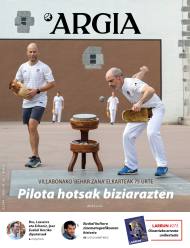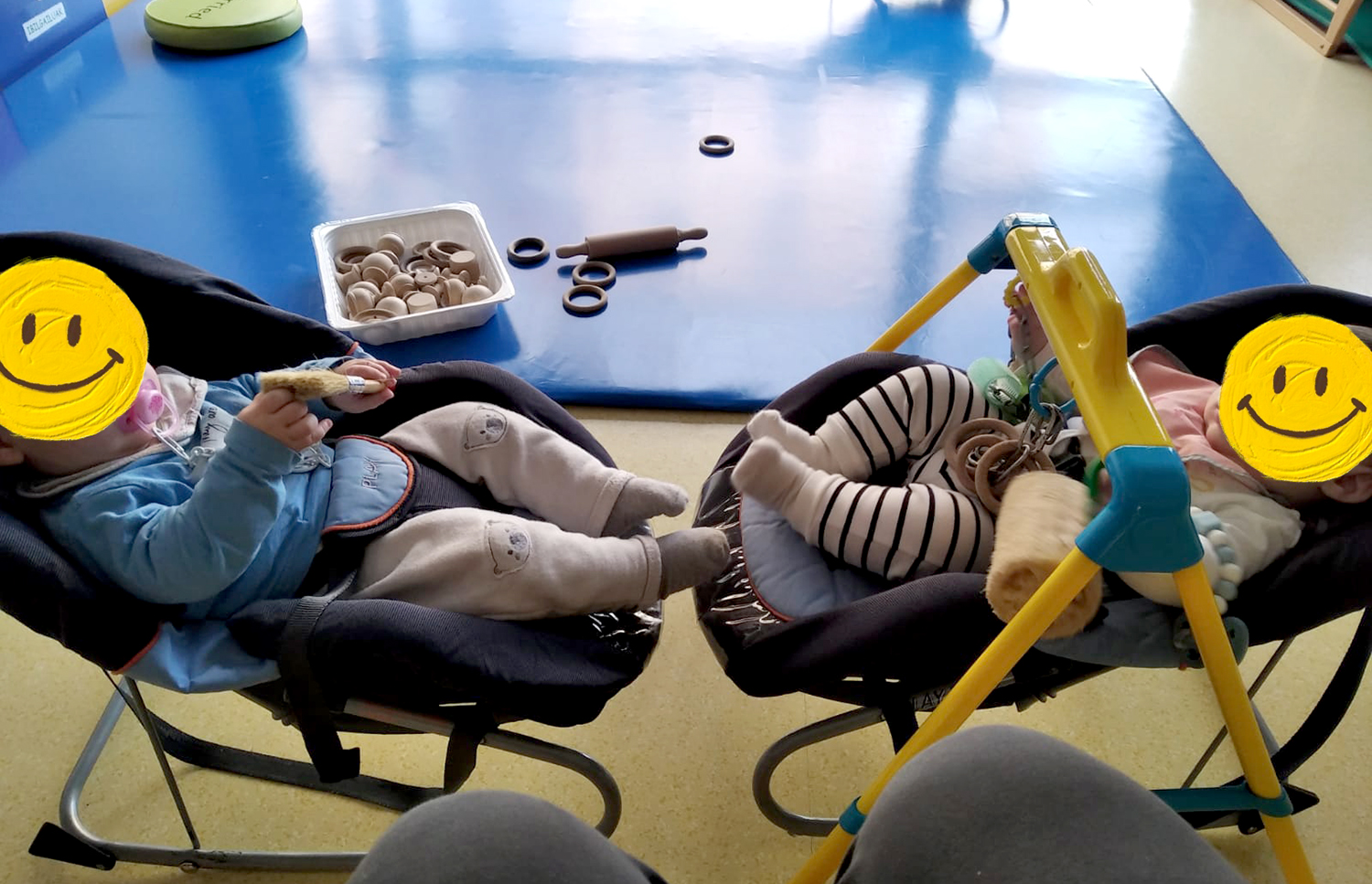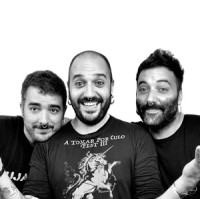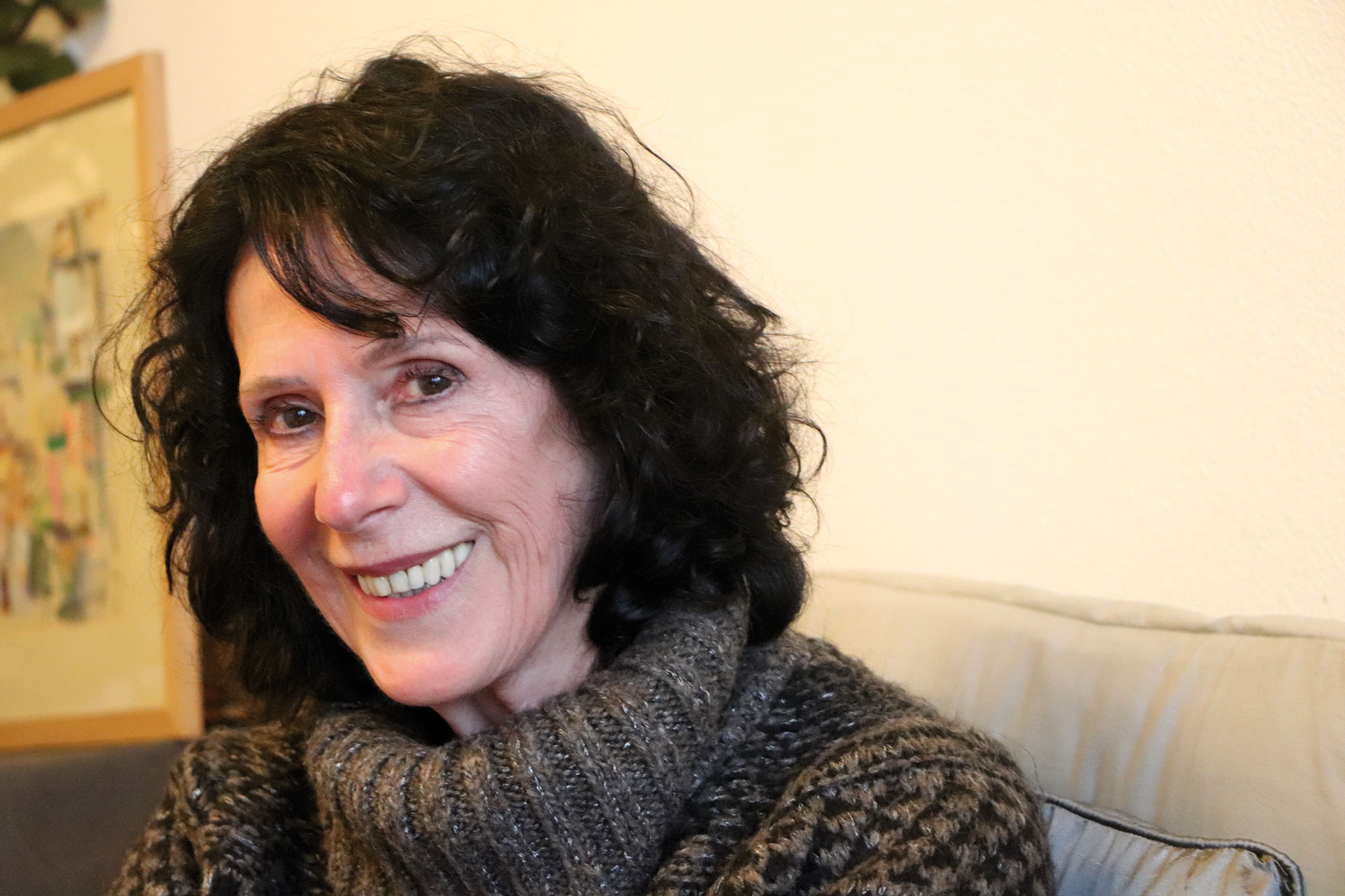"The State should not regulate how the family should be, but protect different models"
- The sexologist Borja Muñoz Arrastia investigates the desire for paternity of non-heterosexual men. Rather than repeating the strict model of the nuclear family, EHGAM has called for the strengthening of community alternatives for child growth.

"I'm Marica and I want to be a father." With this phrase, Borja Muñoz Arrastia starts her work with the feminist research scholarship of the City of Vitoria-Gasteiz: Opening figurations to the non-patriarchal desires of non-heterosexual men. Psychologist and sexologist works in the sexual orientation services of different municipalities, as well as in the provision of sex education lectures in schools. Militating in the newly created EHGAM Gorbeialdea+ group, a line of work on family models has been launched.
There are two extreme trends in the maritime world: the antinatalist and the surrogate pregnancies. But the election of this activist is to demand non-commercialized community pathways to meet the desire for paternity. Critical discourse has been reinforced with a feminist perspective. In particular, he has recommended the book "Reproductive markets" by sociologist Sara Lafuente Funes and "A dialogue on surrogate gestation" by Gracia Trujillo and Lola Robles.
Until recently, no one expected LGBT people to bring their children, which has freed us from social power. Does being referents influence desire?
It all happens. Among the men I have interviewed, some have wanted to be parents since they were young, even if they had no referents, and have lived in complete frustration. Others found the idea of being a child to be martinique, but in adulthood they have been eager, for example when a friendly couple asks their child and gives them the opportunity to participate in the project. There are thousands of pages on the Internet about maternal instinct. On the contrary, those related to the instinct of paternity are very novel and, as a question, does it exist? I believe that from a sexological and feminist perspective there is a complex biographical process. Above all the obstacles there are marbles that have maintained the desire for paternity. Does that mean they have a natural instinct? I don't think so.
You claim the desire for paternity, but you question whether that is a right.
It is dangerous to argue that being a parent is a right. The result of a subjective process is to mix desires and needs. To the extent that we recognize that they are needs, they become rights and then the state has to guarantee them. This is a political problem. That is why I prefer to analyze desire critically and then claim that we can use it to create community, not only to carry out individualistic projects.
Some advocates of surrogate pregnancy consider it discriminatory that Osakidetza offers free treatments to lesbian couples and that they do not respond to the desire for reproduction gay.Es very different to need a child or
a person growing up in the womb. The capacity for fertilization is not the person, but the seed. That is, someone can inseminar without knowing the “owner” of that seed. In contrast, pregnancy occurs inside the body and, therefore, in pregnant women, it is not an oven. Nor can we compare sperm donation with egg donation [necessary in surrogate pregnancies]. Semen comes out for masturbation, it's a day and has no collateral damage. But egg extraction is a long, painful, invasive process.
To defend the reproductive rights of LGBT people, the concept of “constitutional sterility” has been devised. What do you think? It
is said that the lack of a male partner is not a problem of sterility to rule out assisted reproduction by the vollera and the single mother. To meet this criterion, it has been argued that LGBT people have constitutional sterility because we cannot have fertile sexual intercourse in our partners. But this discourse is problematic because it takes for granted that the couple is the only reproductive space. Monica and Bollero have the ability to bring children if we do it outside or beyond the couple. In addition, within LGTB there are very different realities: for example, if there is a cis pica and a trans couple, where is constitutional sterility?
The assisted reproduction industry uses the LGTB community to accept and market expensive treatments or bioethical problems.
It seems to us that surrogate pregnancies have been invented, even though gays are the minority of users. The legalization of surrogate pregnancies has not been a claim to the mysticism of the movement; a few millionaire gays have come to defend it because they have been sold as the panacea to fulfill their dream. It is a complex issue, that when they grow they will reclaim their life: “They are my parents and I am here.” That is why we have to discuss it carefully. My demand is that we develop our projects, if possible without state, without market or technology.
What do your interviewees think about surrogate pregnancies?
They have all expressed their opposition very expressively. Some are related to transfeminism, but others are not politicised and yet everyone has said that it is impossible to guarantee the rights of everyone involved in the context of savage capitalism. One just says that it would be acceptable if it were channelled in a very controlled way, through public management, without economic exchanges and guaranteeing women’s rights. In other words, their opposition lies not in a moralist or essentialist vision, but in an anti-capitalist perspective.
Adoption is another way to grow. I would say that it is idealized in society, that they do not know the barriers or difficulties of the adoption system. What have the interviewees pointed out? Some have been
very critical, especially concerned about the stories of children undergoing international adoption. In addition, international adoption is very limited for homosexual couples. At the heart of adoptions must be the needs of children: children are no longer sought to satisfy the desire for paternity, but houses are sought for children without parents. An interviewee defends family welcoming…
But the reception system pretends that the child returns with his/her family of origin when the conditions are given adecuadas.Por that, the interviewee says that no one gives you or takes away the children, because children are
not goods, not even when they are born from our body. Another interviewee thinks that being a foster care tutor does not make you a father, but it is a way to accommodate the desire for paternity. A third sublimates the desire for paternity through teaching. I think it's a good view, because it's linked to the community.
It says that the system drives us in one way. What were the children like before the age of gay and lesbian assisted reproduction techniques? According to
the book Padres like others, family projects have always existed. Some used newspaper contact pages instead of digital applications. A marica that I've interviewed has had a child and they live together, they're a heterosexual family looking at the world. These agreements have historically been more frequent, and what has changed is that they were previously armed and are now visible.
What do you think of apps to find paternity escorts?
I am very romantic and technophobic! But for many people, the instrument will be a guaya, and probably pretty stories will emerge, like Tinder. The existence of these applications demonstrates the existence of people who want to generate their projects in this way. Heterogeneous people know that there are a lot of people in the world who will share their desire. But for us, it's a big challenge to find a friend who wants to create a tribe of growth. This option is not in the picture and we therefore have to get it right. To start with, we have to convince ourselves and people to believe it's possible. When I go to class, the students know that there are marbles, mourners or transas, but if you criticize the couples, or mention the trios, the teenagers bring their hands to their head!
You say in the study that when a mica says it wants to be a father, the reactions of the family of origin are contradictory: surprise, joy, shame, discomfort… When we leave the closet, it is common for
our families to have partial consent: “It’s OK, but I won’t tell the extended family.” On the contrary, when we increase the lineage, our relatives will have to come out of the closet with those who did not. A paradox that an interviewee calls “the revenge of homophobia.”
"If we don't follow a model that comes from heterosexuality, our desire can serve to strengthen the community."
Family members more easily accept our paternity if we have a genetic relationship with the child.
Yes, it's terrible. On the contrary, nobody gives much importance to the interviewees; their desire is not to proliferate, but to educate children. You say that having children doesn't make you a father, but recognition. On the other hand, there are those who talk about the possibility of creating a terminology to name different types of paternity. Thus, two interviewees create a family of four parents together with a pair of mourners. They invent a way of calling each other: dad, aito, mom and txu. They have a name but no legal declaration. The State should not regulate how families should be, but recognize existing opportunities and provide legal support.
Does the lack of legal recognition make it difficult to recognise the environment?
Yes, the couple of parents and grandparents a acquaintance tells them that they're not the real parents, they don't know what it's like to be a parent, because among the four people it's very easy to grow. Anyone who has said that can envy them because in a family of four parents nobody has to abandon other projects. They help a lot, they create community.
In Canadian courts EE.UU. o Colombia has achieved a victory to approve such models. Where can we start?
Firstly, the system should be adapted to each context. For example, it is unacceptable that in a school there is a family logger from elementary school to high school, and yet in the documentation the categories “father” and “mother” still appear. Changes in civil registration are clear, but they are a great deal of opposition, as it challenges the centrality and privileges of the nuclear family.
In the lesbofeminist movement, there is an argument against motherhood when we create nuclear families: we weaken the black community. Do you understand the concern?
I claim just the opposite: if we do not follow a model that comes from heterosexuality, our desire can serve to strengthen the community. I mean, because I can't just satisfy my partner, I'll form alliances with the nearby bolle or with straight women. The articulation of these networks will break the atomization of the nuclear family, each facing its interior. I'm not saying it's wrong to be a couple or a parent; what I want is to expand the imagination. As a sexologist, it seems to me an interesting contribution to differentiate the types of desire: erotic desire, hedonic desire and reproductive desire. They can be confused, but not necessarily, as they have defended the sexual liberation movement and feminism.
How does Mari debate paternity if it occurs?
The magical world is quite antinatalist. It's been easier for me to find critical speeches from violent or paternal mothers. Among gays, the most ardent discourses favor surrogate pregnancies, which claim their right to establish a family from an idealized and uncritical perspective, without foreseeing the consequences of these actions.
An interviewee is an embarrassing trans parent. What would you highlight of your contribution? Transhombres
have the ability to grow in the womb, but society eliminates this possibility. On the one hand, transition decisions (surgical interventions, hormones...) can affect reproductive capacity. They can stop taking hormones, but the price this choice entails for the binarist world can lead to rejecting the choice. On the other hand, the imaginary of the pregnant woman is linked to femininity. He left me a book with humorous keys for a maceta pregnancy: “It can be a way to have a beer bucket!” I love the contributions of trans people because they're very useful to the whole of society. In fact, many cis women do not fill it with the canon of the pregnant woman.
At the beginning of the research he explained that he chose the theme to help him in his personal process.
This study allowed me to deepen my reflection. I want to be a father forever. When I had female partners, desire was present. When I decided to be a full-time Marica, I had to do a kind of grief. I lost a little bit, I needed referrals, and I found them through the research. I have learned a lot from the experiences of the interviewees and I have had many doubts and fears. How will I now realize my desire for paternity? Well, I'll have to wait for my partner and I to meet the people who share the community model that we want to build.
.jpg)
Iragana ulertzen saiatzen eta etorkizuna bideratzen, oraina joaten zaigu zenbaiti. Nire proiektuetako bat (hasi baina landu ez dudana oraindik) dudan zuhaitz genealogikoa egitea da. Horretan lagunduko didan liburutxo bat ere erosi nuen. Baina, hain da handia lana, liburutxoa... [+]
They appeared, as usual, through the hut, parked in the center of the passage, in herbs and encharcations so as not to dirty the mills, and went through the road, tracing, to the porch, with a large dish in the hand. As usual, the bûche was ready. In French bûche it can be a... [+]
Many at Christmas feel more lazy than illusion when we think about meals and family gatherings. But we anticipate that it is not food that makes us feel collectively uncomfortable, but the normativity that defines the traditional family. Moreover, we would dare to say that the... [+]
Etxeko langile diren eta zaintza lanetan aritzen diren emakumeentzako etxea abian jarri dute Berriozarren. Zortzi pertsonendako lekua duen pisua gaitu dute zaintzan diharduten langileak 6-12 hilabetez espazio duin eta seguru batean bizi daitezen. SOS Arrazakeria Nafarroak eta... [+]
























